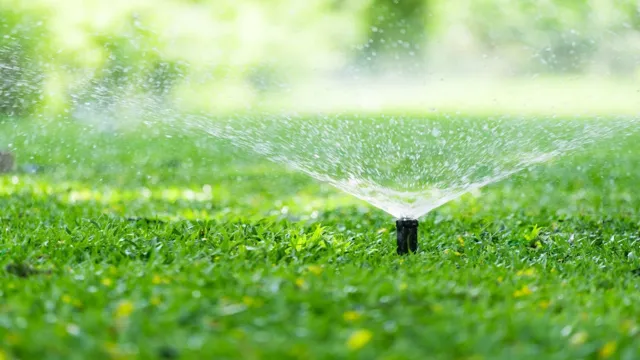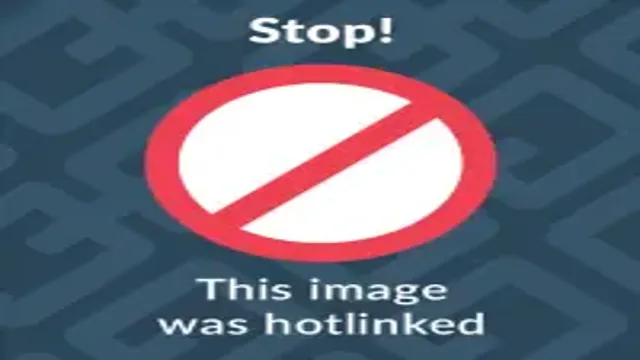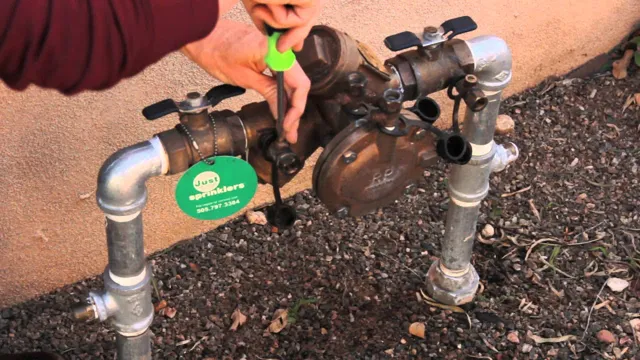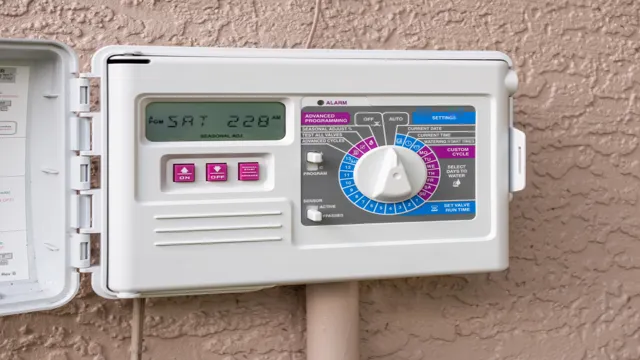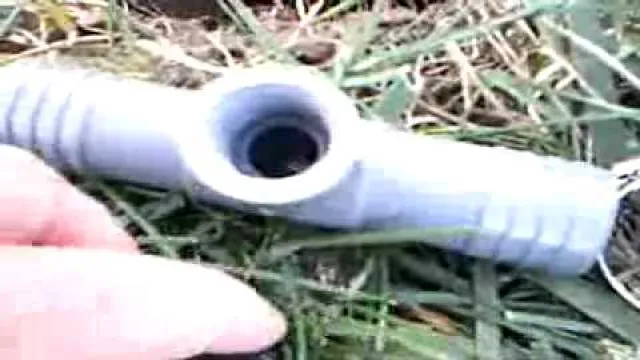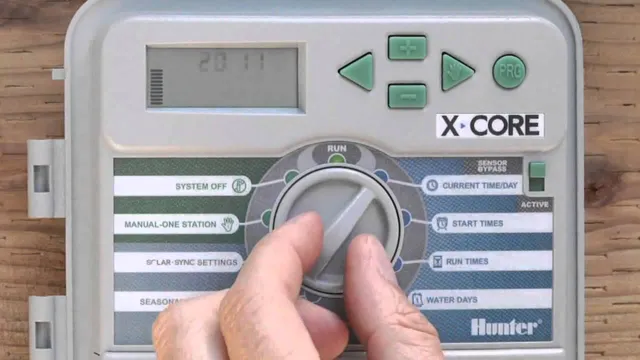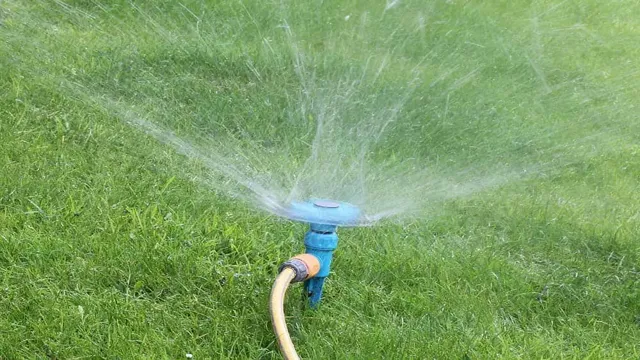Do You Have to Winterize Sprinkler System? Tips to Keep Your Sprinklers Safe
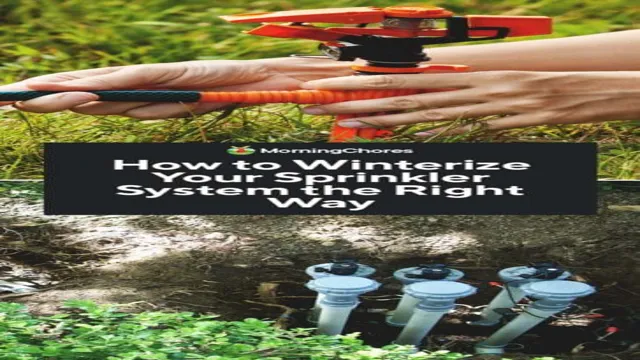
As winter approaches, it’s time to start thinking about winterizing your sprinkler system. Why is it important, you might ask? Well, failing to properly prepare your irrigation system for the freezing temperatures that come with winter can lead to extensive damage and costly repairs come springtime. So, like putting a coat on before heading outside in the cold, taking steps to protect your sprinkler system is essential.
In this blog post, we’ll discuss the reasons why winterizing your sprinkler system is crucial, and provide some tips on how to do it effectively. So, grab a mug of hot cocoa and let’s dive in!
What is Winterizing?
If you live in an area with freezing temperatures, you may be wondering if you have to winterize your sprinkler system. In short, the answer is yes. Winterizing is the process of preparing your sprinkler system for the cold months ahead.
This involves ensuring that all the water has been drained from the system to prevent any damage that may be caused by frozen pipes. If water is left in the pipes, it can freeze, expand, and potentially cause the pipes to burst. This can be costly to repair and can create a huge mess in your yard.
It’s best to have a professional winterize your sprinkler system to ensure it’s done correctly, but if you’re up for the challenge, you can do it yourself with the proper tools. Whatever you decide, make sure to prioritize winterizing your sprinkler system to avoid any unexpected headaches and expenses in the spring.
Overview of Winterizing Process
Winterizing is the process of preparing your home or any other property for the winter season. This involves taking certain steps to protect it from the harsh weather conditions that come with the colder months. The process typically includes tasks like draining pipes and sprinkler systems, insulating windows and doors, sealing cracks and gaps in the walls, and shutting off outdoor water sources.
These steps are crucial to prevent damage to your property that can be costly to repair. Winterizing is especially important for those who live in regions with extreme weather conditions, as it can help to avoid problems like frozen pipes, leaks, and even floods. Taking the time to properly prepare your property for the winter season can also help to reduce energy consumption and save you money on heating bills.
By ensuring your home is winterized, you can have peace of mind knowing that you’ve done everything possible to keep it safe and secure during the winter months.
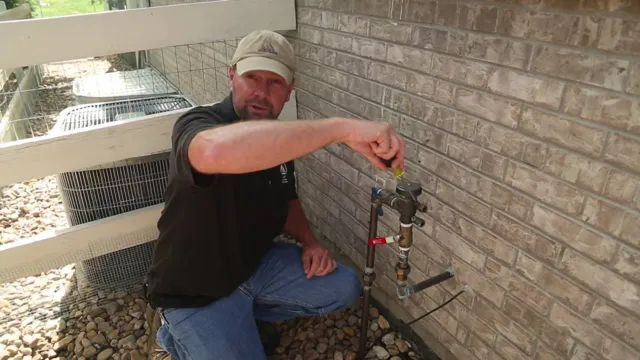
Why Winterizing is Important to Your Sprinkler System
Winterizing is a crucial aspect of maintaining your sprinkler system during the colder months. Essentially, winterizing involves removing any remaining water from the sprinkler system to prevent freezing and potential damage. This is important because when water freezes, it expands, which can lead to burst pipes and other related issues.
To winterize your sprinkler system, you can either do it yourself or hire a professional to do it for you. If you’re doing it yourself, you’ll need to turn off the water supply to the sprinkler system and drain all the water out of it. You may also need to blow compressed air through the system to ensure that all water has been removed.
It’s important to note that winterizing should be done before the first frost, as this is when the risk of freezing starts to increase. By taking the time to winterize your sprinkler system, you’re not only ensuring its longevity but also avoiding costly repairs down the line.
When Should You Winterize Your Sprinkler System?
If you’re asking “do you have to winterize sprinkler system?”, the short answer is yes. Winterizing your sprinkler system is a necessary step in preventing damage from freezing temperatures. But when should you do it? Ideally, you should winterize your system before the first freeze of the season.
This can vary depending on where you live, but generally, late October or early November is a good time to start. It’s important to make sure all water is drained from the system before temperatures drop below freezing, as any residual water can freeze and expand, causing damage to the pipes and other components. A professional irrigation service can offer assistance with winterizing your system, ensuring that it’s properly prepared for cold weather.
Don’t wait too long to take action, or you may end up paying for costly repairs in the spring!
Best Time to Winterize Your Sprinkler System
When it comes to winterizing your sprinkler system, the best time to do so is right before the first freeze of the winter season. This is typically between late October and early November, depending on where you live. When the temperature drops below freezing, the water in your sprinkler system can expand and cause damage to the pipes and other components.
By winterizing your system, you remove any excess water from the lines and shut off the water supply to prevent any potential damage. It’s best to hire a professional for this task, as they have the expertise and equipment needed to do a thorough job. Don’t wait until it’s too late – schedule your winterization appointment now to ensure that your sprinkler system stays in top shape for years to come.
Factors to Consider When Deciding When to Winterize
Winterizing your sprinkler system is an important task to ensure it remains in good working condition come springtime. Deciding when to winterize can vary depending on a few factors. Firstly, the climate you live in plays a significant role in determining when to winterize your system.
If you live in a region with harsh winters where temperatures routinely drop below freezing, it’s best to winterize sooner rather than later. Additionally, the type of sprinkler system you have and its location also affect when you should winterize. Underground systems need to be winterized before the first freeze, whereas above-ground systems can tolerate a bit more cold before needing to be winterized.
It’s also crucial to consider any planned winterization services you may have scheduled, such as gutter or roof cleaning. Ultimately, it’s better to err on the side of caution and winterize your sprinkler system sooner rather than later to avoid potential damage and costly repairs. The main keyword used organically is “Winterize Your Sprinkler System.
“
How to Winterize Your Sprinkler System
If you live in an area with freezing temperatures during winter, you should definitely winterize your sprinkler system. When water freezes inside the sprinkler pipes, it expands and can cause the pipes to burst, leading to significant damage and costly repairs. The good news is that winterizing your sprinkler system is a fairly easy process.
First, you should turn off the water supply to the system from the main valve. Then, you’ll need to use an air compressor or a manual drain to remove all excess water from the sprinkler pipes. Finally, you can insulate the exposed parts of the system with insulated covers or blankets to ensure there’s no chance of freezing or damage.
Overall, winterizing your sprinkler system is a crucial task to ensure its longevity and avoid expensive repairs in the future. So, if you’re unsure whether you have to winterize your sprinkler system, the answer is definitely yes!
Step-by-Step Guide to Winterizing Your Sprinkler System
Winterizing your sprinkler system is crucial to ensure its longevity and efficiency. The process involves removing water from the system to prevent damage due to freezing temperatures. Here is a step-by-step guide to winterize your sprinkler system.
Firstly, shut off the water supply and controller to stop water flow into the system. Next, open the manual drain valve to remove water from the mainline. Then, use an air compressor to blow air through the sprinkler heads to remove any excess water from the system.
Make sure to set the air compressor at the recommended pressure to avoid damaging the system. Finally, inspect and repair any damaged parts before covering the system with a protective insulating cover. By following these simple steps, you can ensure that your sprinkler system remains in top condition and is ready for the next spring season.
Tools and Equipment You’ll Need for Winterizing
Winterizing your sprinkler system is an essential task to ensure that your irrigation system remains in excellent condition throughout the cold winter months. First and foremost, you’ll need a few essential tools and equipment to winterize your sprinkler system efficiently. These include an air compressor, bucket, valve, and drain valves.
Before you begin, it’s crucial to turn off the water supply to your sprinkler system. This will prevent any water from flowing through the system while you’re performing maintenance. Then, attach an air compressor to the system and begin blowing out any remaining water.
It’s essential to do this slowly and carefully to avoid causing damage to your system’s valves and pipes. Once the water has been removed, you can then open the drain valves and let any remaining water drain out. By undertaking this straightforward winterization procedure, you can ensure that your sprinkler system will remain in top shape for the next growing season.
Common Mistakes to Avoid When Winterizing Your Sprinkler System
If you’re wondering “do you have to winterize sprinkler system?” the answer is a resounding yes. Winterizing your sprinkler system is crucial to prevent water from freezing and causing expensive damage to your system. However, there are common mistakes that people make when winterizing their sprinkler system.
One major mistake is turning off the main valve to the system but leaving a leftover water supply without draining it. This leftover water can still freeze and cause damage. Another common error is not fully clearing the water from the system by not opening all the valves and allowing the water to drain completely.
Make sure to follow the proper steps when winterizing your sprinkler system, or hire a professional to do it for you, to avoid costly repairs come springtime.
Misconceptions About Winterizing Sprinkler Systems
Winterizing sprinkler systems is an essential task to protect your irrigation investment from the harsh winter weather. However, some common misconceptions about this process can lead to costly mistakes. One such mistake is not fully draining all the water from the system, which can cause pipes to burst when temperatures drop below freezing.
Another misconception is that blowing out the system with an air compressor is enough to prevent freeze damage. However, it’s also crucial to insulate all above-ground pipes and backflow preventers to avoid damage from any remaining water. Properly winterizing your sprinkler system requires careful attention to detail and a thorough understanding of the process, so it’s essential to hire a professional if you’re unsure of how to do it yourself.
By avoiding these common mistakes and taking the necessary steps to winterize your system properly, you can ensure that your irrigation system will be in top shape come springtime.
Potential Risks of Not Properly Winterizing Your Sprinkler System
Winterizing your sprinkler system is important to prevent potential damage to your irrigation system during the colder months. Failing to properly winterize your sprinkler system can lead to costly repairs or even the need for a full replacement. One common mistake is forgetting to drain the system and leaving water trapped inside the pipes, which can freeze and expand, causing the pipes to burst.
Another mistake is not turning off the main water supply to the system, which can cause the backflow preventer to freeze and crack. It is also important to properly insulate any above-ground pipes, valves, and sprinkler heads to protect them from the cold temperatures. By taking the time to properly winterize your sprinkler system, you can avoid these potential risks and ensure that it remains in good condition for years to come.
So, if you want to avoid costly repairs caused by burst pipes and damaged equipment, make sure to winterize your sprinkler system every year.
Conclusion
In conclusion, while some may argue that winterizing your sprinkler system is optional, the truth is that it’s a wise investment in both time and money to protect your irrigation system from the harsh winter elements. Skipping winterization could lead to costly repairs come springtime or even worse, having to replace your entire system. So unless you fancy yourself a professional plumber and enjoy paying unnecessary expenses, we highly recommend winterizing your sprinkler system.
Don’t let Jack Frost give you the cold shoulder – take the necessary precautions and keep your system in top shape all year long.”
FAQs
Why do I need to winterize my sprinkler system?
Winterizing your sprinkler system is important to prevent damage caused by freezing temperatures. Water left in the system can freeze, causing pipes to burst and irreparable damage to your sprinkler system components.
How do I winterize my sprinkler system?
The best way to winterize your sprinkler system is to drain all the water from the pipes, valves, and sprinkler heads, and shut off the water supply to the system. You can either do it yourself or hire a professional.
When should I winterize my sprinkler system?
You should winterize your sprinkler system before the first freeze or when temperatures consistently drop below 32 degrees Fahrenheit. Waiting too long to winterize your system can result in costly damages.
Can I winterize my sprinkler system on my own?
Yes, you can winterize your sprinkler system on your own if you have the proper knowledge and tools. However, it is recommended that you hire a professional to ensure the job is done correctly and to prevent damages to your system.
What happens if I don’t winterize my sprinkler system?
If you don’t winterize your sprinkler system, water left in the pipes can freeze and cause damage to your system, including broken pipes, valves, and sprinkler heads. This can lead to costly repairs and a non-functioning system.
How much does it cost to winterize a sprinkler system?
The cost of winterizing a sprinkler system can vary depending on the size of the system and whether you do it yourself or hire a professional. On average, it can cost between $50 to $150.
Can I use antifreeze to winterize my sprinkler system?
It is not recommended to use antifreeze to winterize your sprinkler system. Antifreeze can be harmful to the environment and can damage your sprinkler system components. It is best to drain all of the water from the system and shut off the water supply.

